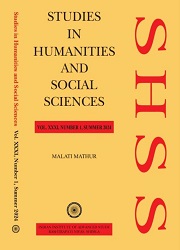Why Naturalistic Fallacy is different from ‘Is-Ought’ Fallacy Chaitanya Joshi
Keywords:
Naturalistic fallacy, is-ought fallacy, moral beliefs, Moral Epistemology, Cognitive error, Cognitive incompetencyAbstract
Despite the clear and categorical stand on the ontological status of moral values, moral realism is bifurcated on the question of their ontological nature. Ethical naturalism, one of the moral realist theories upholds moral values to be real because they are natural, whereas Ethical Intuitionism upholds moral values to be real because they are non-natural. Based on its treatment of moral values as natural, Ethical naturalism has been accused of committing several
philosophical errors or fallacies, most significant of those being Naturalistic fallacy and fallacy of derivation of ‘ought’ from ‘is’. Although Ethical naturalism does indeed commit both of these fallacies, this paper argues that both of these are different errors, and the commission of one may not necessarily imply the commission of the other. In fact, the paper claims the confusion prevalent in literature, conflating one of these two fallacies with the other is a consequence of a certain misattributed reading of both Naturalistic fallacy and the fallacy of derivation of ought from is.



